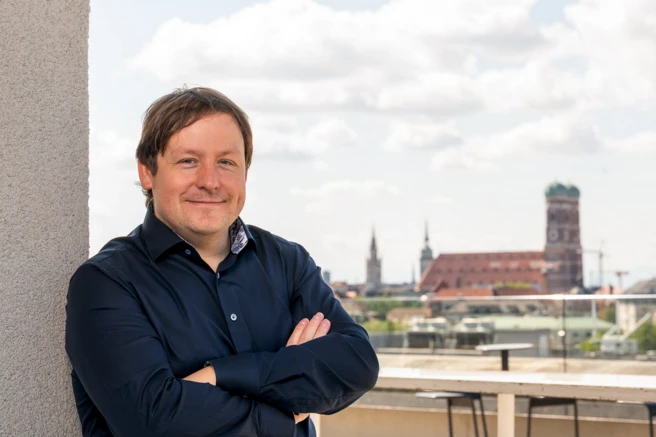New NAT School Prof. Thomas Schlichthärle explains why he decided to return to Germany after successful research positions in Boston and Seattle, USA, in a recent interview published by the foundation. Key factors for the professor in AI-guided Protein Design were solid basic funding, excellent research conditions, and Munich’s strong innovation ecosystem.
He also emphasized that many international researchers are not sufficiently aware of the attractive opportunities Germany has to offer. In his view, better marketing, bilingual administration, and more Core Facilities (with dedicated personnel) are urgently needed to attract and retain talent from abroad.
Schlichthärle further highlighted the great potential of AI-driven protein design for medicine and industry. While UnternehmerTUM and the TUM Venture Labs have created a vibrant start-up ecosystem in Munich, Germany still lacks more flagship ventures of the kind that have recently emerged internationally in protein design.
Europe’s protein design community is still young but expanding quickly and aggressively. With several research groups now based in Munich and the BioSysteM Cluster of Excellence as a catalyst, the ecosystem is well-positioned to take a leading role.
Read the full interview here: Interview with Prof. Schlichthärle.
Further information and links
- Schlichthärle’s research group AI-Guided Protein Design https://www.bio.nat.tum.de/aipd/
- Wübben Foundation Supports International Tenure Track Professorship https://www.nat.tum.de/en/nat/latest/article/wuebben-foundation-supports-international-tenure-track-professorship-of-prof-thomas-schlichthaerle/
Contact about the article
Prof. Thomas Schlichthärle
Technical University Munich
Professor for AI-Guided Protein Design
thomas.schlichthaerle(at)tum.de
+49 (89) 289 – 13349
Press contact
communications(at)nat.tum.de
Team website
